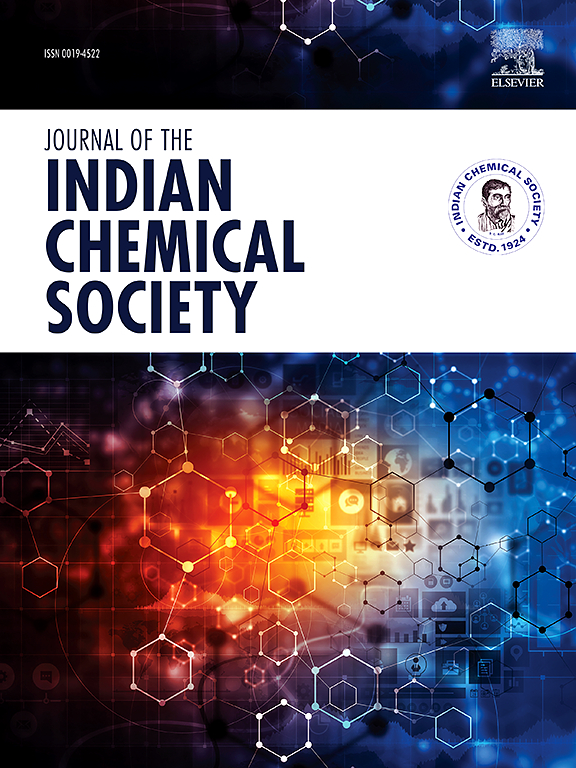Fabrication of crosslinked Silver and Zinc Oxide nanosheet and their potential for agricultural applications
IF 3.2
4区 化学
Q2 CHEMISTRY, MULTIDISCIPLINARY
引用次数: 0
Abstract
India is an agriculture based country where the agriculture sector contributes about 30 percent of the total GDP. Due to increasing population there is more demand for higher agricultural yields. This has led to an increase in the use of fertilizers and various potentially harmful chemicals in farming practices. With the aim of satisfying farmers' need for improved yields and addressing food security challenges with existing resources, we have pursued a modern and sustainable approach by integrating nanotechnology. In the present work chitosan based nanosheets (NSs) have been synthesized using an environment friendly green synthesis approach. The chitosan based silver and zinc oxide NS has been synthesized, using the extract of husk of almond (Prunus amygdalus) and walnut (Juglans regia). The NSs synthesized has been characterized and their effect on seedling germination of Vigna radiata (Mung bean) under different experimental conditions has been studied. The experiments have been performed under normal room temperature both in soil and hydroponics has been studied.
Seeds treated with NSs showed better germination and better growth in comparison to normal seeds. The promising effects of NSs open avenues for the use of Nanoparticles/sheets in the agriculture sector. The use of NSs/NPs can prove as an easy and eco-friendly way towards sustainable agriculture.
交联氧化银和氧化锌纳米片的制备及其农业应用潜力
印度是一个以农业为基础的国家,农业部门占国内生产总值的30%左右。由于人口的增加,对高农产品产量的需求也越来越大。这导致了在农业实践中化肥和各种潜在有害化学物质的使用增加。为了满足农民对提高产量的需求和利用现有资源解决粮食安全挑战,我们通过整合纳米技术寻求了一种现代和可持续的方法。本文采用绿色环保的方法合成了壳聚糖基纳米片。以杏仁(Prunus amygdalus)和核桃(Juglans regia)的壳提取物为原料,合成了壳聚糖基氧化锌银。对合成的NSs进行了表征,并研究了不同实验条件下NSs对绿豆幼苗萌发的影响。在常温条件下进行了土壤和水培试验。与正常种子相比,NSs处理的种子具有更好的发芽和生长。纳米颗粒的前景为纳米颗粒/薄片在农业部门的应用开辟了道路。使用NSs/NPs可以证明是实现可持续农业的一种简单而环保的方式。
本文章由计算机程序翻译,如有差异,请以英文原文为准。
求助全文
约1分钟内获得全文
求助全文
来源期刊
CiteScore
3.50
自引率
7.70%
发文量
492
审稿时长
3-8 weeks
期刊介绍:
The Journal of the Indian Chemical Society publishes original, fundamental, theorical, experimental research work of highest quality in all areas of chemistry, biochemistry, medicinal chemistry, electrochemistry, agrochemistry, chemical engineering and technology, food chemistry, environmental chemistry, etc.

 求助内容:
求助内容: 应助结果提醒方式:
应助结果提醒方式:


